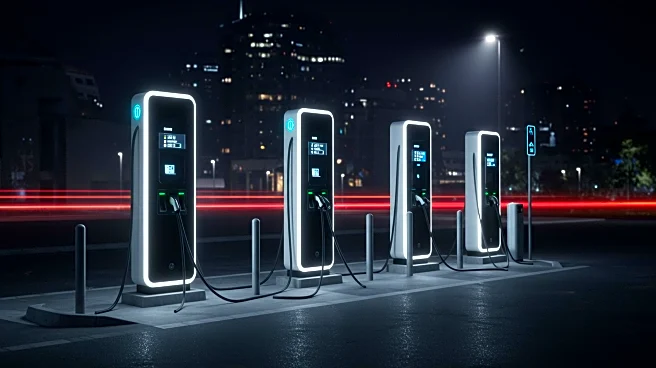What is the story about?
What's Happening?
Electric vehicle (EV) charging networks are experiencing growth, driven by private investments, even as EV sales are expected to slow following the expiration of tax credits on September 30. The expansion of charging infrastructure is being supported by automakers, who are investing in these networks to facilitate the transition to electric mobility. This development comes amid concerns that the end of consumer tax credits could dampen EV adoption rates, as these incentives have been a significant factor in encouraging consumers to purchase electric vehicles.
Why It's Important?
The growth of EV charging networks is crucial for the widespread adoption of electric vehicles, as it addresses one of the primary concerns of potential EV buyers: charging availability. By expanding the infrastructure, automakers and investors are laying the groundwork for a future where EVs are more practical and convenient for everyday use. However, the anticipated slowdown in EV sales due to the expiration of tax credits could pose challenges for the industry, potentially affecting the pace of transition to electric mobility. The situation underscores the importance of continued investment and policy support to sustain momentum in the EV market.
What's Next?
With the expiration of tax credits looming, the EV industry may see a short-term decline in sales, prompting stakeholders to explore alternative incentives or strategies to maintain growth. Automakers and policymakers might consider new initiatives to encourage EV adoption, such as enhancing charging infrastructure or introducing new financial incentives. The response of consumers and the industry to these changes will be critical in shaping the future trajectory of electric vehicle adoption in the U.S.
















